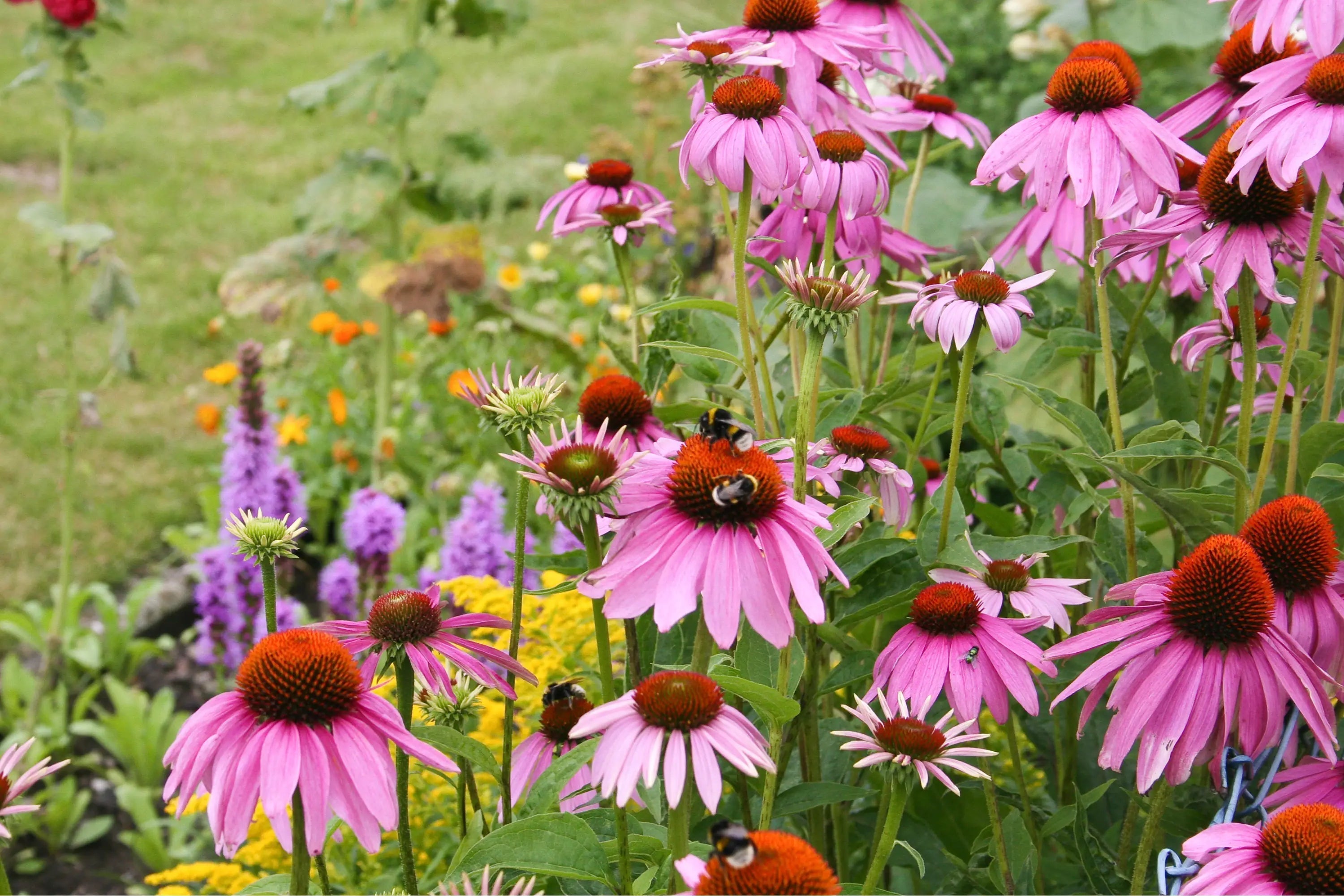Echinacea is one of the most sought-after herbs for respiratory infectious conditions among adults. Therefore, many parents wonder whether there are benefits of taking echinacea for kids as well. If you are one of them, explore with us till the end.
In this article, we’ll review the potential benefits of echinacea for kids along with possible side effects, and necessary precautions. But before we get into how echinacea can benefit health conditions in children, it’s worth knowing the basics of the plants a little bit more. So, let’s get started.
What is echinacea?
Echinacea is a group of flowering plants related to ragweed. Although there are many types, three species of echinacea that are thought to have the most medicinal qualities are Echinacea angustifolia, Echinacea purpurea, and Echinacea pallida. The plant is also known as purple cornflower.
Echinacea plants are endemic to the rocky mountainous areas of the United States. The root, flower, and leaf have been used as natural remedies by Native Americans for decades. Today, echinacea is widely available as a dietary supplement in a variety of forms including liquid tinctures, capsules, powders, teas, chewables, syrups, and gummies.
Echinacea: Plant chemicals and properties
Echinacea plants contain various plant chemicals and many of them have significant antioxidant and anti-inflammatory properties. Antioxidants are compounds that help protect cells from damage caused by oxidative stress, making the body more efficient in preventing and managing various health conditions.
Some echinacea plant chemicals may include:
- Polysaccharides
- Flavonoids
- Glycoproteins
- Alkamides
- Volatile oils
Benefits of echinacea for kids
Echinacea and the plant chemicals it contains seem to activate bodily processes that can help decrease inflammation and improve the body’s immune response. Echinacea can benefit children in a number of health conditions. Let’s take a look at some common of them:
Echinacea may improve symptoms of colds
Echinacea is well-known for its benefits for colds, especially when it comes to children. Multiple studies suggest that echinacea has chemicals that can help reduce the duration and severity of symptoms in colds.
A 2007 meta-analysis of fourteen studies published in the Lancet Infectious Diseases suggests that echinacea has the capacity to reduce the duration and recurrence of symptoms in people with colds.
Echinacea may help in managing skin conditions
Echinacea has been shown to have significant antimicrobial properties including antiviral and antibacterial activities that can help prevent and manage various skin conditions.
A 2011 study published in the Phytotherapy Research shows that Echinacea purpurea is effective in inhibiting the proliferation of acne-causing bacteria and reducing its associated symptoms of inflammation such as swelling and pain.
Echinacea may support the immune system
Multiple studies suggest that echinacea has noticeable immunomodulatory properties that can help prevent various infectious conditions.
A 1994 systematic review of several controlled clinical trials published in an international journal of Phytotherapy and Phytopharmacology - Phytomedicine - showed that echinacea may have immunomodulatory activities that can benefit the immune system.
How to use echinacea for children
Echinacea is available in a variety of forms including gummies, capsules, teas, powders, and liquid tinctures that are safe tinctureres for kids. Recommended dosages vary depending on the forms and active ingredients. It's always best to consult with a qualified naturopath or healthcare provider to determine which form is best for your child’s condition, as well as the recommended dosage.
For our natural liquid Echinacea Tinctures, dosages may vary depending on the age of the children. In general, a dosage ranging from 10 drops to 50 drops two to three times per day is often recommended by clinicians.
Here you can see our pure and natural Echinacea Angustifolia Tincture.
Here you can see our pure and natural Echinacea Purpurea Root Tincture.
Side effects and precautions on echinacea for kids
Echinacea is possibly safe and well-tolerated for most people including children. However, some children may experience side effects such as abdominal pain, vomiting, diarrhea, fever and chills, insomnia, unpleasant taste in the mouth, skin rash, and allergic reactions.
Besides, echinacea has a direct effect on immunity. For this reason, children with autoimmune conditions should not be given it. Finally, echinacea may interact with certain prescription medications and affect their efficacies. Therefore, it’s best to consult with a licensed naturopathic doctor or healthcare provider prior to using echinacea for kids.
Final words
The use of echinacea for kids has been for decades. It can help strengthen the immune response and benefit in a number of health conditions including symptoms of cold, skin conditions, and infections. Consider working with a licensed naturopathic doctor or healthcare provider to determine the best dosages and forms.





Share:
Benefits of Organic Cordyceps: Your Ultimate Guide
Vitamins vs. Tinctures: Which Should You Choose?